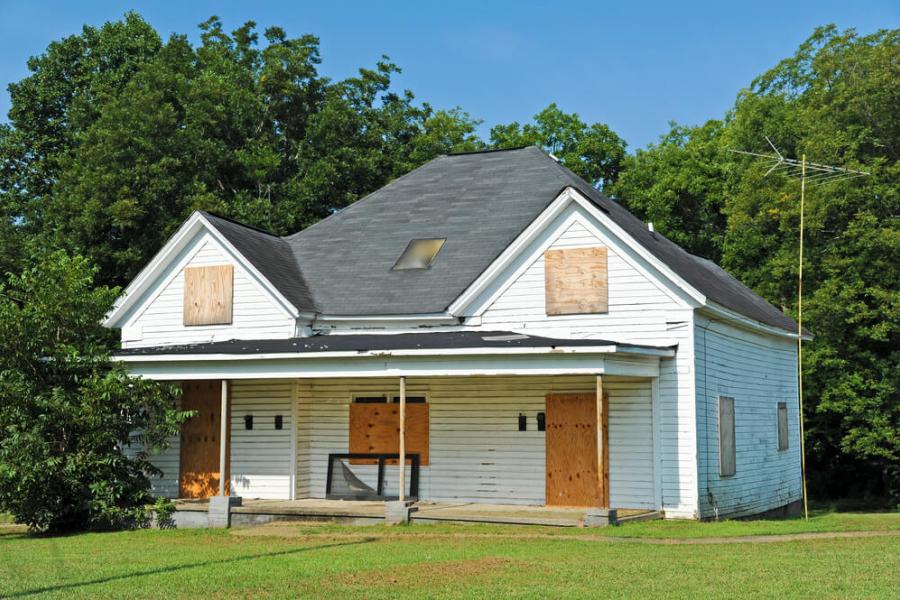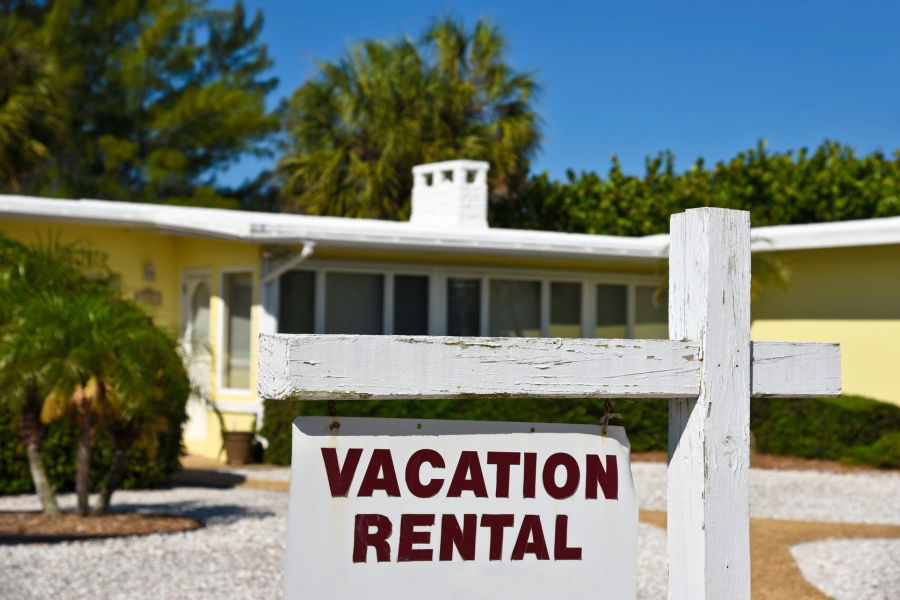Investing in real estate is some of the oldest and most reliable financial advice in the books. Few other assets can compete with real estate’s vast array of benefits. These benefits include tax advantages, appreciation, relative impunity to market shifts, and even the potential for passive income.

But even if you have every intention of investing in real estate, it can be challenging to get started. After all, even a modest home usually requires a substantial down payment. And it can take years to save up those five-figure sums. The term “real estate investor” may bring to mind a multi-millionaire who manages several properties, leaving you feeling overwhelmed enough to give up the ghost entirely.
Fortunately, it is possible to invest in real estate with little or no money, even if you aren’t swimming in discretionary income. For instance, with an Opportunity Fund or REIT (Real Estate Investment Trust) you can get your foot in the door even if you can’t afford to purchase an entire property. There are also a host of ways to leverage your own home. These include house hacking, renting vacation space on Airbnb, and more.
In this post, we’ll break down everything you need to know about how to invest in real estate. We’ll go over some of the most common types of real estate investing. We’ll also break down how they can help you make money. And we’ll explain how you can begin, no matter how much capital you have in hand.
Why Invest in Real Estate?
Before we dig into the meat of the post, let’s take a moment to backtrack. Why is real estate investing such a well-worn piece of financial advice?
You’ve probably heard that diversifying your portfolio of real estate investments is essential. But your “portfolio” doesn’t just have to live on the stock market! Real estate investing gives you, as the name suggests, a real, tangible asset. And it’s much less vulnerable to the capriciousness of the market.
Real estate investing can help you not only build home equity but also generate passive cash flow. Both through the process of appreciation and the more intentional, hands-on approaches we’ll study further below. And owning your own home can help you reap financial benefits while simultaneously providing for one of your most basic needs.
How to Invest in Real Estate with Little Money
When a down payment might cost as much as $60,000, it’s understandable that many first-time property shoppers feel overwhelmed. They say you have to spend money to make money. Yes, but that’s quite a hefty figure for the average American earner.
To be sure, some real estate investment strategies require a good deal of cash upfront to be workable. But there are other tactics that don’t require such a large lump sum to begin with. This means you don’t have to be a real estate mogul to be a property owner. We’ll break down various strategies at both ends of the spectrum below.
Types of Real Estate Investing
Let’s get into the nitty-gritty. What types of real estate can you invest in?
There are three main types of investment properties available to real estate investors.
- Residential properties are probably the ones you’re most familiar with. They are exactly what they sound like: buildings used by individuals and families as residential living spaces. These properties include single-family homes, duplexes, apartments, condominiums, and townhouses, and multifamily homes (so long as they’re being used residentially and don’t exceed four units).
- Commercial real estate are properties used to conduct business. They may include offices, storefronts, retail spaces, farmland, and large multifamily houses or apartment buildings.
- Industrial real estate are properties that serve industrial business purposes, such as factories, power plants, or storage and shipping warehouses.
Furthermore, there are both active and passive forms of real estate investing.
Active investing is, well, active. It requires a good deal of time, energy, and commitment from the investor. Active investing may become a part- or even full-time job for the investor. They usually share ownership with few (or no) other people, and thus bears a lot of responsibility for the success of the investment.
Passive investing, on the other hand, allows the investor to reap the benefits of investing without taking on the pressure and responsibility of full ownership of a tangible property. In most cases, passive investing involves supplying capital to a larger investment pool. You earn capital gains on loan interest through dividends paid to shareholders.
We’ll go into it all of this in more detail, including specific ways you can invest in real estate, both active and passive.
How Real Estate Investing Can Help You Earn
Before we break down the specific ways you can get started investing in real estate, let’s talk about how it can help you make money. (After all, that’s the whole point!)
You can invest in real estate in several ways, depending on what type of investing you’re participating in.
Equity and appreciation
Purchasing real estate equips the owner with a “hard asset”; the tangible property or building. Owning this kind of asset confers equity, or value. It isn’t as vulnerable to the fluctuations of the market as stocks, bonds, and other securities. Furthermore, property has a longstanding history of increasing in value over time, or appreciating.
On the contrary, other types of purchases (like automobiles) depreciate, or lose value. Thus, purchasing a property may allow you to earn income passively simply through the process of appreciation. It more or less ensures that the cash value of your home is a safe and stable part of your overall net worth.
Rental income
Chances are, you’ve had to pay rent to a landlord at some point in your life. Well, if you become the landlord, someone’s paying you the rent. And as long as that rental price eclipses your total expenses, including your mortgage and maintenance costs, the rest is profit!
Aside from managing the investment property, you can also collect rental income by sharing your space on platforms like Airbnb or house hacking, which we’ll explain below.
Sale profit
This happens when you buy a home with the intention to fix it up and sell it down the line (also known as “house flipping”.) It’s the difference between your sale cost and your purchase cost (minus all the expenses put into maintenance and improvements) is pure profit.
Loan interest
The interest charged on home and property loans can increase the value of real estate investments made through REITs, investment platforms, and private equity firms.

Ways to Invest in Real Estate
Now we know a bit about the different types of properties available to investors and how those real estate investments stand to help you earn cash.
So, what are the specific ways to go about real estate investing? There are several in both the “active” and “passive” categories.
Active:
- House flipping, or rehabbing, is when an investor purchases a property with the sole intent of fixing it up to sell it later on.
- Wholesaling is similar to flipping houses, but less work intensive. Wholesaling occurs when an investor purchases a property they believe is underpriced, so they can quickly sell it to another investor at a profit.
- Rental properties give investors a long-term way to draw profit from their investments, though they do require lots of hands-on management and maintenance over time.
- Airbnb, Vrbo, and other vacation rentals can often be listed for substantial per-night prices. They can be especially lucrative in high-demand travel destinations.
Passive:
- Private equity funds pool the assets of many investors, which creates a larger, more powerful investment fund. These funds are usually overseen and allocated by a dedicated manager. They may have high minimum investment thresholds and requirements to join.
- Opportunity funds also pool investors’ assets, but with the specific purpose of making investments in qualified Opportunity Zones. These are low-income, up-and-coming communities that would benefit from private investments and economic development.
- REITs are companies that invest in commercial properties. Private investors can purchase shares of the company and earn income on capital gains in the form of dividends.
- Online REIT platforms can make real estate investing accessible to beginning investors, often carrying no net worth or accreditation restrictions. They may allow you to invest in specific properties or in pre-built, diversified portfolios of real estate.
We’re going to break down these different investment options in even more detail below. But first, let’s start a bit closer to home—literally.
Starting with Your Own Home
One of the most straightforward ways to invest in real estate is probably already on your financial to-do list, anyway: purchasing your own home.
Purchasing a home of your own allows you to kill two birds with one stone. You’re taking care of the basic need of shelter, while also leveraging the purchase to reap a host of financial benefits.
Here are just a few ways that owning a home can help you save and earn money.
- Build equity: As discussed above, property ownership confers relatively immutable equity to the purchaser—that is, your home is a fairly safe, tangible asset to add to your overall investment portfolio.
- Receive tax benefits: Certain homeowners’ expenses, including real estate taxes and home mortgage interest, are tax-deductible. And if you sell your home, you may exclude up to $250,000 of capital gains (or $500,000 if filing jointly) from your taxes.
- Take advantage of appreciation: Even accounting for the 2008 crisis, the cost of homes and other properties have steadily increased over time for the past 50 years. So, the home you purchase today will likely be worth more than the price you paid for it in the future.
- Stop paying rent: Although you’ll likely still have a mortgage payment and other expenses to cover as a homeowner, you won’t be paying rent to live in another person’s property. It’s a cost that is essentially entirely wasted, since you aren’t building home equity in the rental property.
- Keep the value of your home improvements: When you own a home of your own, any improvements you make will add to the property’s total value, beefing up your asset as well as beautifying your living space.
House Hacking
Another way to make money by purchasing your own home is known as “house hacking“. It’s a real estate investment strategy wherein you leverage rental income from your primary residence to live there cost-free.
The term was originally coined by entrepreneur and author Brandon Turner, who wrote “The Book on Investing in Real Estate with No (and Low) Money Down” and “The Book on Rental Property Investing.”
House hacking may be done, for example, by purchasing a duplex. The investor rents out one unit at a price that covers the mortgage cost while living in the second unit. Some homeowners have also used space-share platforms like Airbnb to offset their housing costs in the same manner.
Real estate investors can use this strategy to pay off the property and even create a profit margin. This will eventually allow them to invest in more rental properties. Thus, house hacking is a great way to combine the personal financial benefits of homeownership with the long-term earning potential of other types of property investment.
Buying a Home Without a Huge Down Payment
Given the recent trends in the housing market, you may feel daunted by the prospect of becoming a homeowner. In 2023, the U.S. housing market experienced significant challenges, with home prices rising to near-record highs.
But there are many incentives and programs designed to make this large investment more feasible for first-time home buyers.
- FHA (Federal Housing Administration) Loans may allow borrowers to purchase a home with a down payment as small as 3.5% of the purchase price and with credit scores as low as 580. (You may also be approved for an FHA loan with a lower credit score, but your minimum down payment may be higher.)
- The USDA also offers low-cost loans to low- and moderate-income households purchasing homes in qualified rural areas.
- Down Payment Assistance Programs offered by local governments and private firms can provide grants, loans, and educational materials to prospective home buyers
Many other financial institutions and organizations also have special incentives for those purchasing their first homes or low-income families in the housing market. Make sure you check with your local housing authority to learn more about what’s available in your area.
Active Investment Opportunities
Want to get hands-on? Here are the details on some of the most popular and accessible active real estate investment opportunities.
House Flipping

If you’ve ever watched more than thirty minutes of HGTV, chances are you’re at least passingly familiar with the idea of flipping houses. It’s basically where you purchase a home with the express intent of fixing it up and selling it (at a higher cost) later.
House flipping is a great way for investors to earn a significant profit. However, they do need to know how to complete the flip successfully without incurring too many costs. Expenses can quickly eat into the investment’s return.
Finding a Home to Flip
House flippers have to be able to recognize a home that may be slightly undervalued but would be able to sell well given the proper upgrades. This involves both an understanding of the area’s desirability and the types of improvements that generate increased home value.
House flippers are responsible for the entire cost of the home purchase. They must also pay for all the upgrades, which they may either do themselves or hire out to professionals.
Either way, flipping houses incurs a hefty up-front cost, and it does come at a risk. Even after you make all the improvements, it’s possible that the house will languish on the market.
This can mean racking up maintenance, taxes, and other expenses for the real estate investor. However, a properly executed, short-term flip can create a substantial profit margin in a relatively small period of time.
Wholesaling
Like house flippers, wholesalers purchase homes with the intent of selling them quickly. But, they aren’t planning to do any heavy lifting along the way.
Instead, wholesalers find properties that are undervalued for their market. They scoop them up and resell them to other investors at a price closer to their true value. Thus, earning the difference as a profit.
Rental Properties
While managing rental properties may seem like a straightforward and reliable way to earn income, it’s one of the most work-intensive approaches on this list. It does require enough up-front capital to purchase the property (or properties) in the first place. However, landlords do stand to see substantial and steady returns in exchange for the work and effort they put into their properties.
After purchasing a viable property, which needs to be well-maintained, in a desirable location, and well-advertised, landlords are responsible for filling that property with qualified tenants. This can involve a time-consuming and labor-intensive screening process.
After all, as a landlord, you’re giving your renters the keys to your investment—literally! It can be a very risky move if you don’t take the time to ensure your tenants are well-qualified.
Finding & Qualifying Tenants
Along with running a standard background check, landlords may also conduct interviews with and request credit reports from prospective renters, all of which takes time. And don’t forget: every month your rental property is unfilled is a waste of potential income.
Once you do find qualified tenants, you’ll be responsible for a host of obligations unless you hire a property management company. You’ll need to provide maintenance and repairs. You’ll also need to stay on top of rent collection and record-keeping. It can quickly become unwieldy once you have several properties.
You’ll also need to be sure you’re in compliance with all the renters’ rights that exist in your jurisdiction, including laws that regulate the eviction process. Of course, you’ll need to put in the work to find good renters and a well-maintained property in the first place. When done so, managing rentals can provide a smooth and steady source of income for relatively little active work.
Seller Financing
Want to buy an investment property with no money down? Look into seller financing or a land contract. This is where the seller acts as the bank. You make your mortgage payments, including interest, to the seller.
After a few years or so, you will have enough equity in the home to get a bank loan. You can then make a lump sum payment to the seller.
Private & Hard Money Lenders
Private money lenders generally charge between 6% to 12% on the money borrowed. Hard money lenders usually charge 10% to 18%. Hard money loans are not from banks. They are from individuals or businesses aimed at financing real estate investments for a return on their money.
Hard money loans are used by investors who don’t qualify for conventional financing. They are typically used to fund renovations. Once the house is finished or has some equity in it, the borrower then refinances to a conventional mortgage with a lower interest rate.
Airbnb, Vacation Rentals, and Space Sharing

Managing a traditional property, wherein renters sign a multi-month lease, is not the only way to make money from an investment property. Platforms like Airbnb have revolutionized the real estate market. They allow homeowners (and sometimes even renters) to make money by renting out their space on a temporary, per-night basis as a vacation rental.
What’s more, you don’t necessarily have to rent out an entire home or unit to participate. A private room, or even a couch in a shared living room, is acceptable for some travelers using these services.
Airbnb and other vacation rental platforms make it simple for a novice renter. You don’t need to have a huge amount of know-how to start earning money this way. In fact, you don’t even necessarily have to “invest” in any property at all. Some landlords may allow their renters to list their housing on Airbnb as a sublet.
Airbnb Laws
However, as this new form of investment property has expanded, it’s created housing crunches in some cities. It’s resulting in “Airbnb laws,” or short-term rental legislation. These laws may limit your ability to use your housing in this way.
Always check your local regulations before you list your space on Airbnb or another of these types of platforms. If you don’t own the space, ensure that short-term sublets are allowed. Check your lease or ask your landlord directly.
Real Estate Investing Groups and Passive Investing
You may have noticed that many of the active real estate investment opportunities listed above do require substantial upfront capital to get started. You can’t wholesale or flip a house if you can’t purchase the house in the first place!
Furthermore, these active strategies generally involve a high level of skill, effort, and responsibility. It may not be feasible for those committed to other full-time careers.
Fortunately, there are still other ways to get involved with real estate investing, even if you don’t want to own or manage tangible property. (Or if doing so is out of financial reach for you right now). These passive investment tactics can help you glean the benefits of real estate investing without taking on quite as much of a fiscal and physical burden.
Private Equity Funds
A private equity, or PE fund, pools contributions from various investors to make larger investments. They’re often limited liability partnerships. That means there are fixed periods during which investors do not have access to their holdings.
Instead, PE funds allow investors to earn gains on debt and equity assets passively, without putting in much active work or research. Asset allocation and investments are managed by a dedicated individual or group. They earn money through annual fees as well as profit sharing.
PE funds come in various types, including the following:
- Core equity funds generally invest in established commercial properties. They don’t carry risks like needing major improvements or experiencing losses for lack of consumer demand. The core strategy is simultaneously the least risky among PE funds and, typically, the least gainful.
- Core plus equity funds generally follow the core strategy, but take a few more risks on properties that may require minor upgrades. This leads to a higher risk-return ratio on average.
- Value added equity funds may invest in commercial properties that require substantial upgrades or new management to operate at their full potential. They may also seek to sell the property after improvements are made to create an additional profit margin.
- Opportunistic equity funds offer the highest potential rewards, along with the highest risk. Investment properties purchased via these funds may need new construction or even land acquisitions. The payoff of such a new business venture is all but guaranteed. Furthermore, these developments take time, which means your investment capital may be tied up for longer. However, when they pay off, opportunistic equity funds see some of the best returns of the bunch.
Although PE funds are powerful real estate investment engines, they do often have high minimum investment requirements, generally not less than $100,000. Some funds may also be limited to accredited or institutional investors who can demonstrate available means.
Opportunity Funds
Opportunity funds operate on a similar model to private equity funds but are specifically used to make investments in qualified Opportunity Zones. These are economically distressed areas designated by the state and certified by the Secretary of the U.S. Treasury. Opportunity funds are legally required to invest 90% of their assets into properties in these Opportunity Zones.
Because these areas tend to be up-and-coming (and because tax benefits can incentivize investors to support them), opportunity funds often see substantial capital gains for their investors. And taxes incurred on those gains can be deferred until December 26, 2026.
That means the longer the investment is held before that date, the lower your overall tax liability will be. And opportunity fund investments held for at least ten years prior can expect their capital returns to be permanently excluded from capital gains taxes.
Of course, this strategy requires parting with your investment capital for a significant period of time. It’s best for those who can afford to put down the money to play the long game. If you can, however, investing in one is a great way to see substantial returns for almost zero effort.
Real Estate Investment Trusts (REITs)
A real estate investment trust(REIT) is a company that invests in commercial properties. As an investor, you purchase shares of this company just as you would any other. You earn income through its debt and equity assets in the form of shareholder dividends.
REITs operate similarly to mutual funds. They provide an excellent way for the average earner to experience the benefits of real estate investing. You don’t have to have a huge amount of capital to get started, as minimum investment requirements may be quite low.
However, they may carry high investment fees, especially in the case of private REITs (i.e., those not publicly traded on the stock market). Fees at these companies may run as high as 15%. REITs may also be illiquid and keep your money locked up for longer periods of time.
Online Real Estate Investment Platforms
In this digital, all-sharing-all-the-time age, most of us have already heard of crowdfunding. Real estate investments are no exception to the rules of the new millennium.
Online real estate investment platforms have begun springing up. They can make real estate gains achievable for average investors who may not have the towering net worth or accreditation status necessary to buy into more formal funds. Depending on the specific company, you might be able to choose specific investment properties to fund or buy into a diversified portfolio of investments.
Fees and minimum investment requirements are relatively low on real estate crowdfunding platforms. For instance, Fundrise lets you get started with just $500. That is much less than you’d have to pay to get in on most types of active investments! Check out our full review of Fundrise here.
Ready to Get Started Investing in Real Estate?
As you can see, there are several ways to start investing without saving up a five- or six-figure sum. And if you do it right, your investments can actually help you reach those high savings goals. You can then fund other types of investment projects!
However, as with any financial objective, planning and strategizing is key. Saving up as much capital as possible will help you get the best return on your investment once you’re ready.
You can’t allocate your assets without first keeping track of them, and to achieve that, you need to create a budget. If you’re in debt, aggressively paying it off will free you of a weighty financial anchor, so check out these powerful debt relief options.
Finally, if you intend to purchase property either to live in or as an investment opportunity, your credit score matters. It’s as simple as that. If your credit score isn’t quite where you want it to be, take these steps to raise it. Doing so will allow you to get the best interest rate once you’re ready to make the big purchase.




